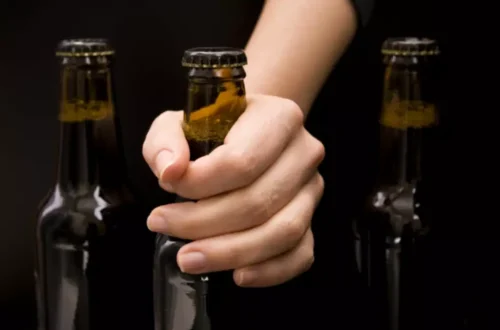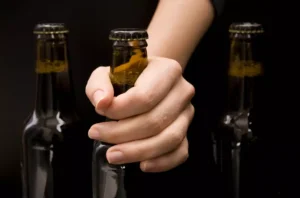What to Do After a Relapse: 6 Steps To Take After a Relapse

Remember that there’s no time limit on reaching out for help. Recovery is lifelong, and a relapse can happen at any time, even after years of not drinking. Think about things that led to or worsened this relapse and how to remove them from your life. If a trigger is unavoidable, consider what you can do differently next time you face it. When it does, it’s important to know this isn’t the end of your recovery journey.
- If they relapse and use the same dose that they used during active addiction, their risk of overdose is high.
- Once the danger of overdose is removed, you should reach out to your support system and find a safe living environment.
- It involves discovering emotional vulnerabilities and addressing them.
Cultivating Consistency for Sustained Recovery

Before you can move forward after a relapse, it’s important to look at why the relapse occurred in the first place. When you know why you relapsed, you can adjust your treatment plan to focus on the factors that challenge your long-term recovery. All of these things may be important for you on your path to recovery following a relapse, but you know yourself best, and what you as an individual might need to focus on the most. Just remember that relapse can be just a stepping stone on your long-term road to recovery. Rather, it is another step on your continuing path to recovery and a sign that you need additional support and help.

Lifestyle
- Remember that there’s no time limit on reaching out for help.
- The immediate goals should be to remove access to alcohol or other drugs, shield yourself from negative influences including friends who drink or use drugs and begin to search for addiction treatment.
- A slip, or lapse, is characterized by a brief and often single episode of substance use.
- In fact, at some point, if you don’t use the substance, you may feel worse.
- Of course, the goal is to stop using drugs or alcohol completely and not relapse.
If you’ve been in a program, immediately connect with your counselor, therapist, support group, or mentor. Recommit to your self-care plan, especially activities that eased stress and other emotional triggers. If you can recognize the warning signs of each stage, you can take action to avoid a relapse. A healthy brain releases chemicals that give you pleasure when you do something rewarding, like exercising or meeting up with your friends. As you become addicted, your brain demands more and more of the drug to get that same feeling.
Ways To Successfully Deal With The Urge to Drink During The Holidays
For example, between 30 and 50 percent of patients with Type 1 diabetes relapse, and between 50 and 70 percent of people with hypertension relapse, according to the National Institute on Drug Abuse. Participating in a recovery program and building a support network is essential to preventing relapse. In addition to seeking professional treatment, you might consider joining a 12-step program or other mutual support groups. Relapses can also occur in physical and mental health conditions. In a health condition, they involve the return of disease symptoms.
- Shift perspective to see relapse and other “failures” as opportunities to learn.
- Attention to sleep and healthy eating is minimal, as is attention to emotions and including fun in one’s life.
- According to the National Institute on Drug Abuse, 40 to 60 percent of people who go through addiction treatment programs go on to slip at least once.
- You may decide you need to recommit to your recovery by entering treatment again.
The UK government’s guidelines emphasize the importance of both short-term and long-term medication strategies to enhance the benefits of treatment and reduce the risk of relapse. Research highlights the importance of identifying triggers and high-risk situations that can lead to relapse, such as stressful environments or emotional responses that challenge sobriety. Ultimately, navigating the emotional aftermath of a relapse requires compassion, support, and a willingness to seek professional help when needed. By addressing these emotions head-on, individuals can reaffirm their commitment to recovery and build resilience against future challenges. On the other hand, a relapse signifies a more significant setback where an individual abandons their https://ecosoberhouse.com/article/5-tips-of-how-to-maintain-recovery-motivation/ recovery plan and returns to their addictive behaviors for an extended period. Immediately after a relapse, you should contact your support network to assemble a game plan.
Stages of Relapse
American Addiction Centers (AAC) is committed to delivering original, truthful, accurate, unbiased, and medically current information. We strive to create content that is clear, concise, and easy to understand.

What It’s Like to Have Long COVID As a Kid
Being open and honest about your recovery allows friends, family members and co-workers to support you when you need it. Including others in a relapse prevention plan can help the plan succeed. This cycle of repeated relapse is dangerous because it takes a toll on the individual’s health (physical and mental), sense of self-worth, and whatever healthy, positive relationships remain in his or her life. Although repeated slips can be a normal part of recovery for some, ongoing relapse and rehab can become a compulsive pattern of its own and make it even more difficult to successfully stay sober long-term.

Is Relapse Part of Recovery?
For example, you might believe that you can’t quit, that recovery takes too much effort, and that you won’t enjoy life as much without alcohol. Research also shows that people in early recovery are at a higher risk of relapse than someone with a sustained period of sobriety. Studies show that a person who has completed treatment remains at a higher risk of relapse (approximately 50 percent) for the first 12 weeks after leaving treatment. For those in recovery from alcohol use disorder, rates of relapse are as high as 90 percent.
Self-care is a critical component in maintaining long-term recovery from addiction. It encompasses various practices that promote physical, mental, and emotional well-being, crucial for reducing cravings and improving resilience. Establishing a consistent routine is crucial for reinforcing positive behaviors and reducing the risk of relapse.
Breaking the Relapse-Cycle With Addiction Relapse Prevention
What is most often considered a “traditional” relapse occurs when someone makes a conscious decision to what to do after a relapse drink or use drugs. For example, they may choose to smoke marijuana to relieve stress after a year of sobriety or have a glass of wine with friends because they feel like they can manage it without going overboard. A “freelapse”, on the other hand, is the colloquial term for an accidental relapse that happens when a person unintentionally uses drugs or alcohol.